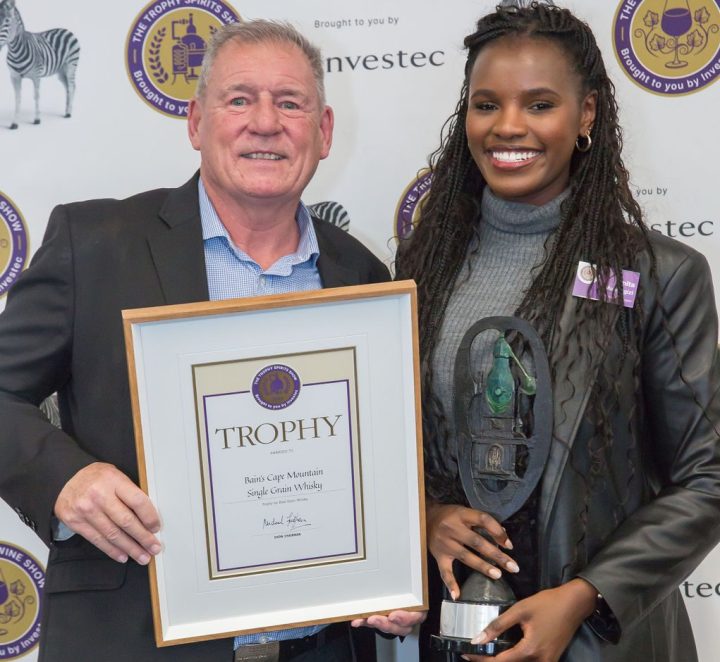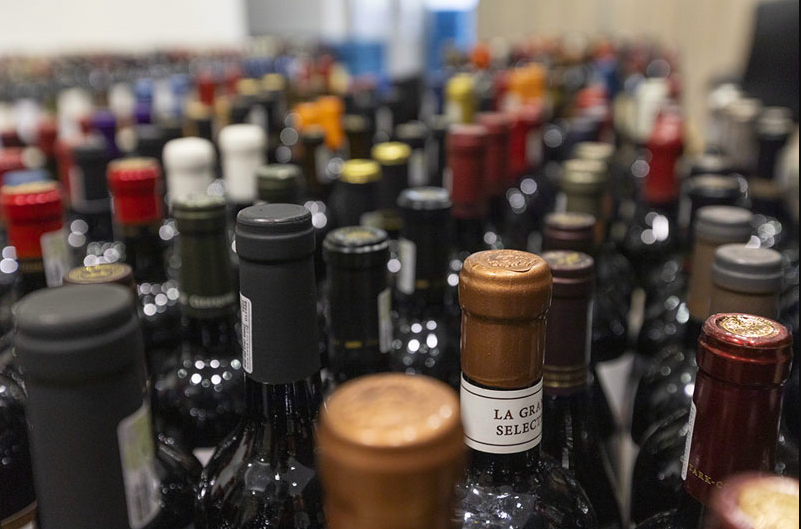IN IT TO VIN IT
Finding hope and the glass half-full

Competitions are critical to enhancing producers and marketing South Africa’s wine and spirits industry.
It’s been suggested that there are simply too many wine competitions in South Africa for consumers to keep track or know which to take seriously. There’s a wine competition and “challenges” for just about every grape variety under the sun, some of which might appear to award the same producers each year. Because of this, some might argue that competitions are manipulated and not to be trusted. Such an argument, I would humbly suggest, is tripe because wine competitions require that wines are scored for quality and value on a blind-tasting basis. Plus, you truly have to be in it to win it.
So, any estates that might crow about steering clear of competitions are losing out on an opportunity to market themselves and help grow the sector, which is still battling to recover from Covid.
Tata ma chance
Why I say this is that SA Wine (formerly Vinpro) data shows that the South African market’s still concentrated in the affordable segment (ie. less than R50 per bottle), with 79% of wine sales in this segment. And the real growth lies in premiumisation.
Daneel Rossouw, Nedbank’s head of sales for agriculture, noted in a recent article that there is real potential to transform the shape of the South African wine market in reaching higher price points. “Growth in the local wine market can be achieved by engaging with current alcohol drinkers to encourage them to ‘move up’ into the value wine segment (R50 to R90 per bottle), which currently makes up just 19% of local wine sales.
“Driving this trend would enable South Africa to mirror the wine price pyramid of other key wine markets, in which 55% of wine sales in developing markets fall into this category, while value wines make up 60% of sales in developed markets.”
Our exports are certainly driven by sales of bulk wine, which is why some shrewd producers are shifting their focus to the premium market.
The concentration of wine sales in the affordable segment is damaging the industry, Rossouw said, which imperils South African wine’s sustainability: Only 9% of producers are in the green, while most (53%) are barely making a profit or even breaking even.
“A staggering 38% of South African wine producers are making a loss and do not have the financial means to replace old unproductive vineyards, which results in the industry shrinking in terms of hectares planted. Apart from our tendency to be boxed into the value wine category, reasons for the low-profit situation include growing input costs while producer price inflation remains low, producer attrition, and an excise burden on still wine in South Africa far exceeding that of emerging markets, developed markets and wine-producing countries.”
However, there’s a glimmer of hope, he said: “The upside is that we have so much going for us: South African wine experienced the highest growth in the premium £10+ (per bottle) category in the United Kingdom – our biggest export market – growing by 54.1% last year when compared with Australian wines, which grew just 23,7% in that category.”
The government, we might be shocked to hear, has for once come to the party by cutting tariff and non-tariff barriers in international markets and embedding wine tourism at the heart of South African Tourism’s messaging and strategy.
Wines of South Africa, which is tasked with driving exports of all South African wine in key international markets, has also committed to maintaining current volumes while focusing on growing the value of our wines, building the country’s image as a premium wine producer and communicating our key differentiators in both established and emerging markets.
This is a start, as there’s much work to be done, which entails focusing on producing quality, premium wines; marketing the right messages to the growth sector (read: a more youthful market) and increasing production of the popular varieties.

Wines from this year’s Trophy Wine Show.
Back to competitions then: Paul Clüver Family Wines has just won three trophies at this year’s International Wine Challenge for its Seven Flags Chardonnay 2021 – its best performance at the competition so far – including the IWC International Chardonnay Trophy, for best South African White Wine, as well as the IWC Sustainable Trophy.
The IWC, known as the most rigorously judged on the international wine awards circuit, is widely acknowledged as the world’s most impartial, influential and global wine competition, assessing every wine “blind” for its faithfulness to style, region and vintage, with trophies awarded to the very best in each category.
Last month, the Investec Trophy Wine Show competition winners were announced. This week, it was time for the fifth Investec Trophy Spirits Show, which is growing in popularity, receiving 145 entries this year (compared with 128 entries last year). The whisk(e)y classes saw the greatest number of entries (39) – mainly from Scotland, which included malt, grain, pot-still and blended whiskies, followed by 31 gins. The organisers said there was a fair spread of London Dry, distilled and flavoured gins; a strong showing from brandy producers (with pot-still submissions from the Cape and France) and, reflecting the trend in tequila and rum, more entries than before in these classes. Vodkas, aperitifs and cream liqueurs also made a showing.
This year, France’s Martell beat out South African competitors, while some of the biggest names in whisky were represented on the winners’ podium.
In May, South African brandy once again did rather well at the World Brandy Awards, with Van Ryn’s 15-year-old Single Potstill named World’s Best Wine Brandy for the second consecutive year. South Africa won 16 medals and awards, leaving France in second place.
This year’s international judges included George Harper (whisky), Jérôme Royer (brandy) and Jon Gray (gin).
The South African judges were Andy Watt, Dave Gunns, Dr Mare-Loe Prinsloo, Kurt Schlechter, Carla Weightman and Pieter Carter.
The list of winners is long – for details, visit their website. DM




















 Become an Insider
Become an Insider
Comments - Please login in order to comment.